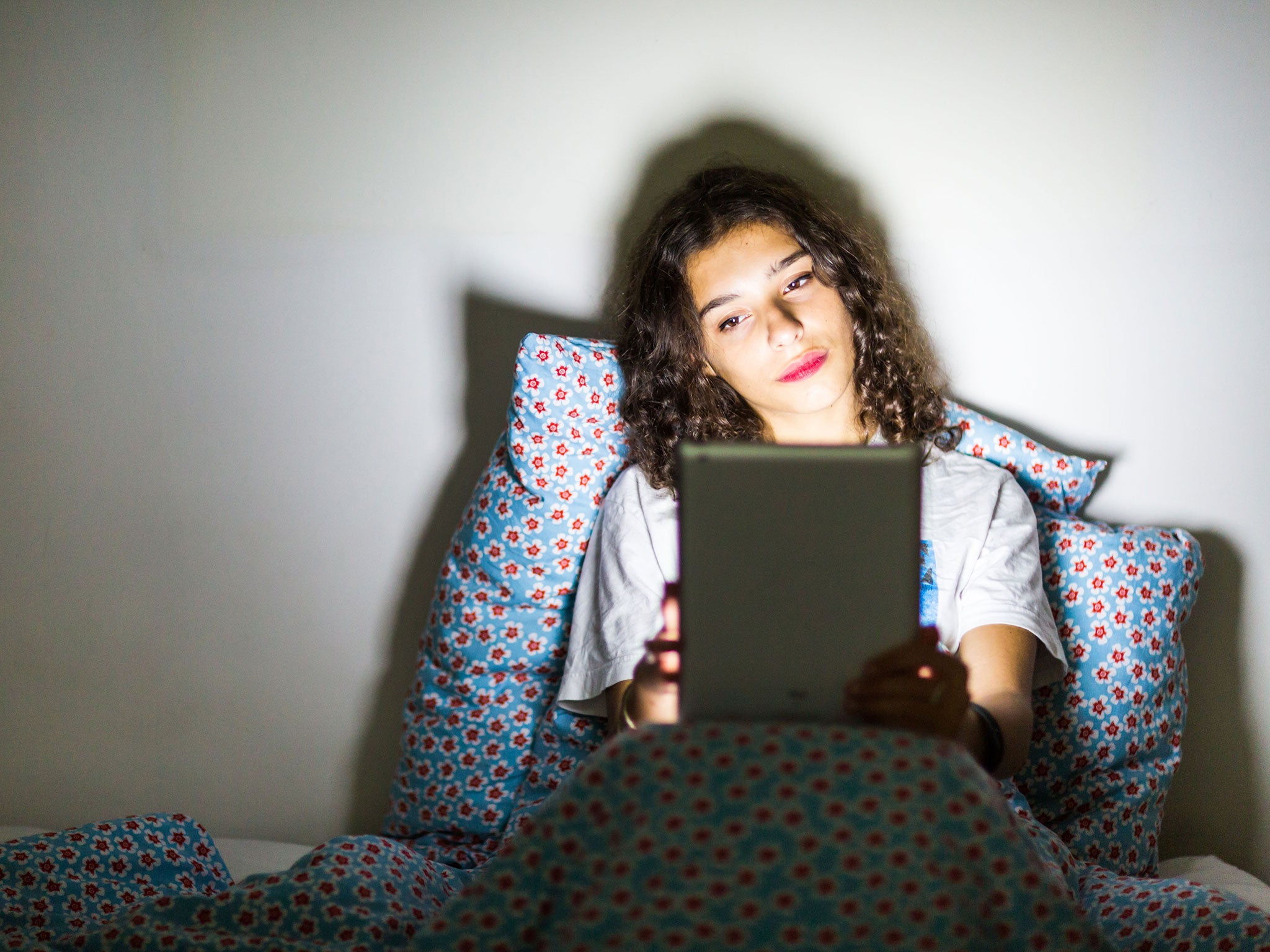Artificial light iPad screens could be spoiling our sleep patterns
Using iPads at night might suppress the release of the hormone melatonin

Your support helps us to tell the story
From reproductive rights to climate change to Big Tech, The Independent is on the ground when the story is developing. Whether it's investigating the financials of Elon Musk's pro-Trump PAC or producing our latest documentary, 'The A Word', which shines a light on the American women fighting for reproductive rights, we know how important it is to parse out the facts from the messaging.
At such a critical moment in US history, we need reporters on the ground. Your donation allows us to keep sending journalists to speak to both sides of the story.
The Independent is trusted by Americans across the entire political spectrum. And unlike many other quality news outlets, we choose not to lock Americans out of our reporting and analysis with paywalls. We believe quality journalism should be available to everyone, paid for by those who can afford it.
Your support makes all the difference.Reading books on an iPad and similar e-readers in the evening may disturb sleep patterns because of the type of light the device emits, scientists said.
The researchers found evidence to suggest that using iPads at night might suppress the release of the hormone melatonin which is involved in inducing sleepiness, resulting in the shifting of the normal circadian rhythm governing the body’s 24-hour biological clock.
The study of 12 adults for two weeks involved comparing reading from an iPad or a printed book before bedtime. The melatonin levels of each volunteer were monitored and their sleep patterns and morning alertness were also monitored.
The participants took nearly 10 minutes longer to fall asleep and had a significantly lower amount of dream sleep after reading from a light-emitting e-reader than they did after reading from a printed book, according to the study in the Proceedings of the National Academy of Science.
“Our most surprising finding was that individuals using the e-reader would be more tired and take longer to become alert the next morning. This has real consequences for daytime functioning, and these effects might be worse in the real world as opposed to the controlled environment we used,” said Anne-Marie Chang of Penn State University.
“Electronic devices emit light that is short-wavelength-enriched light, which has a higher concentration of blue light than natural light. This is different from natural light in composition, having a greater impact on sleep and circadian rhythms,” Professor Chang said.
“We live in a sleep-restricted society, in general. It is important to further study the effects of using light-emitting devices, especially before bed, as they may have longer term health consequences than we previously considered,” she said.
The researchers measured the amount of brightness coming from several devices, including an iPad, iPhone, Kindle, Kindle Fire and Nook Colour. The Kindle e-reader does not emit light, while the iPad, Kindle Fire and Nook Colour emit similar amounts of light. However, the iPad is the brightest of the devices measured.
Each participant read from an iPad before bedtime for five nights in a row, and did the same with a printed book. It was randomly determined whether a participant read from a print book or an iPad first – the results showed that the order did not make a difference. Participants were able to choose their own reading material, as long as it could be considered “leisure” reading and did not contain any images or puzzles, only text.
Join our commenting forum
Join thought-provoking conversations, follow other Independent readers and see their replies
Comments